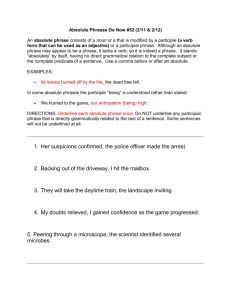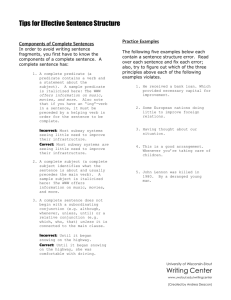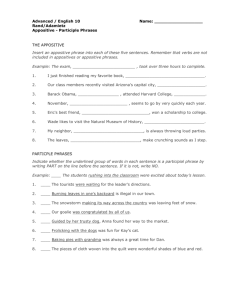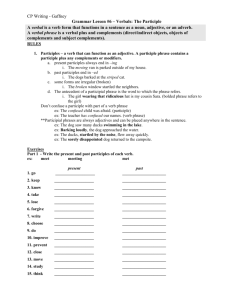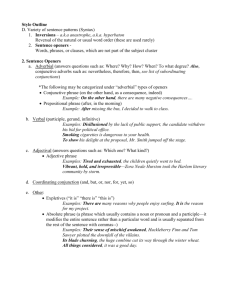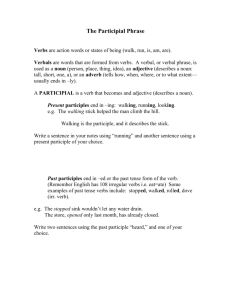Ready… set… combine! Step One: Create a sentence with a
advertisement
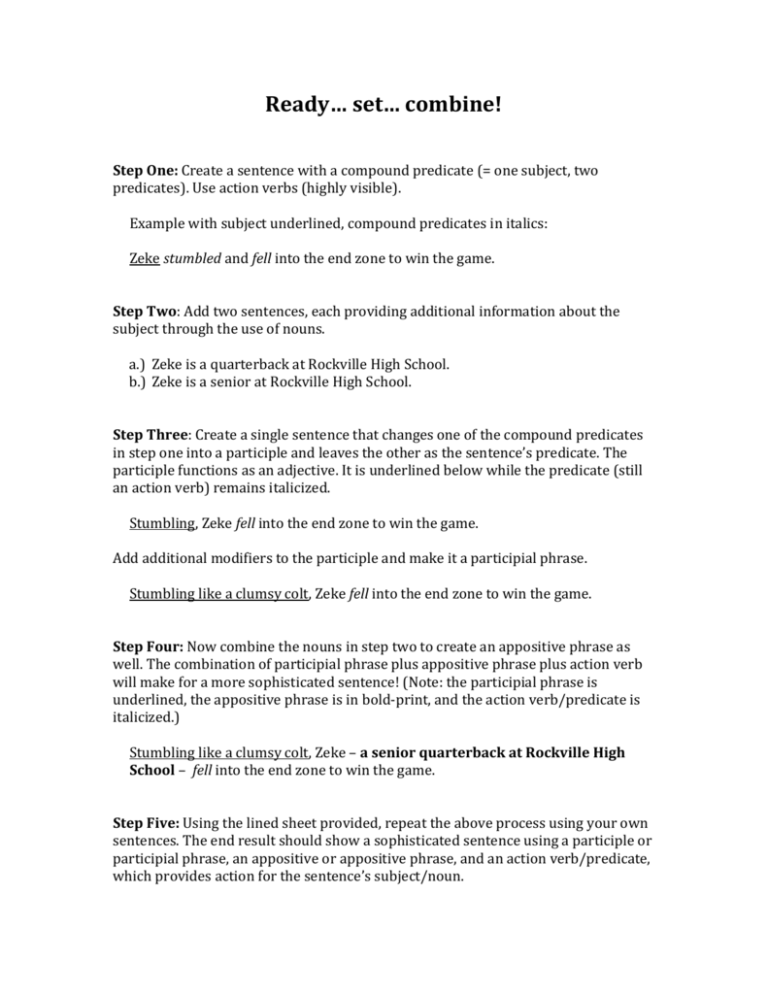
Ready… set… combine! Step One: Create a sentence with a compound predicate (= one subject, two predicates). Use action verbs (highly visible). Example with subject underlined, compound predicates in italics: Zeke stumbled and fell into the end zone to win the game. Step Two: Add two sentences, each providing additional information about the subject through the use of nouns. a.) Zeke is a quarterback at Rockville High School. b.) Zeke is a senior at Rockville High School. Step Three: Create a single sentence that changes one of the compound predicates in step one into a participle and leaves the other as the sentence’s predicate. The participle functions as an adjective. It is underlined below while the predicate (still an action verb) remains italicized. Stumbling, Zeke fell into the end zone to win the game. Add additional modifiers to the participle and make it a participial phrase. Stumbling like a clumsy colt, Zeke fell into the end zone to win the game. Step Four: Now combine the nouns in step two to create an appositive phrase as well. The combination of participial phrase plus appositive phrase plus action verb will make for a more sophisticated sentence! (Note: the participial phrase is underlined, the appositive phrase is in bold-print, and the action verb/predicate is italicized.) Stumbling like a clumsy colt, Zeke – a senior quarterback at Rockville High School – fell into the end zone to win the game. Step Five: Using the lined sheet provided, repeat the above process using your own sentences. The end result should show a sophisticated sentence using a participle or participial phrase, an appositive or appositive phrase, and an action verb/predicate, which provides action for the sentence’s subject/noun. Ready… set… combine! Step One: Create a sentence with a compound predicate (= one subject, two predicates). Use action verbs (highly visible). ____________________________________________________________________________________ . Step Two: Add two sentences, each providing additional information about the subject through the use of nouns. a.) _________________________________________________________________________________. b.) _________________________________________________________________________________. Step Three: Create a single sentence that changes one of the compound predicates in step one into a participle and leaves the other as the sentence’s predicate. The participle functions as an adjective. It is underlined below while the predicate (still an action verb) remains italicized. ______________________________________________________________________________________________. Add additional modifiers to the participle and make it a participial phrase. ______________________________________________________________________________________________. Step Four: Now combine the nouns in step two to create an appositive phrase as well. The combination of participial phrase plus appositive phrase plus action verb will make for a more sophisticated sentence! (Note: the participial phrase is underlined, the appositive phrase is in bold-print, and the action verb/predicate is italicized.) _______________________________________________________________________________________________ _______________________________________________________________________________________________ _______________________________________________________________________________________________. The end result should show a sophisticated sentence using a participle or participial phrase, an appositive or appositive phrase, and an action verb/predicate, which provides action for the sentence’s subject/noun.
